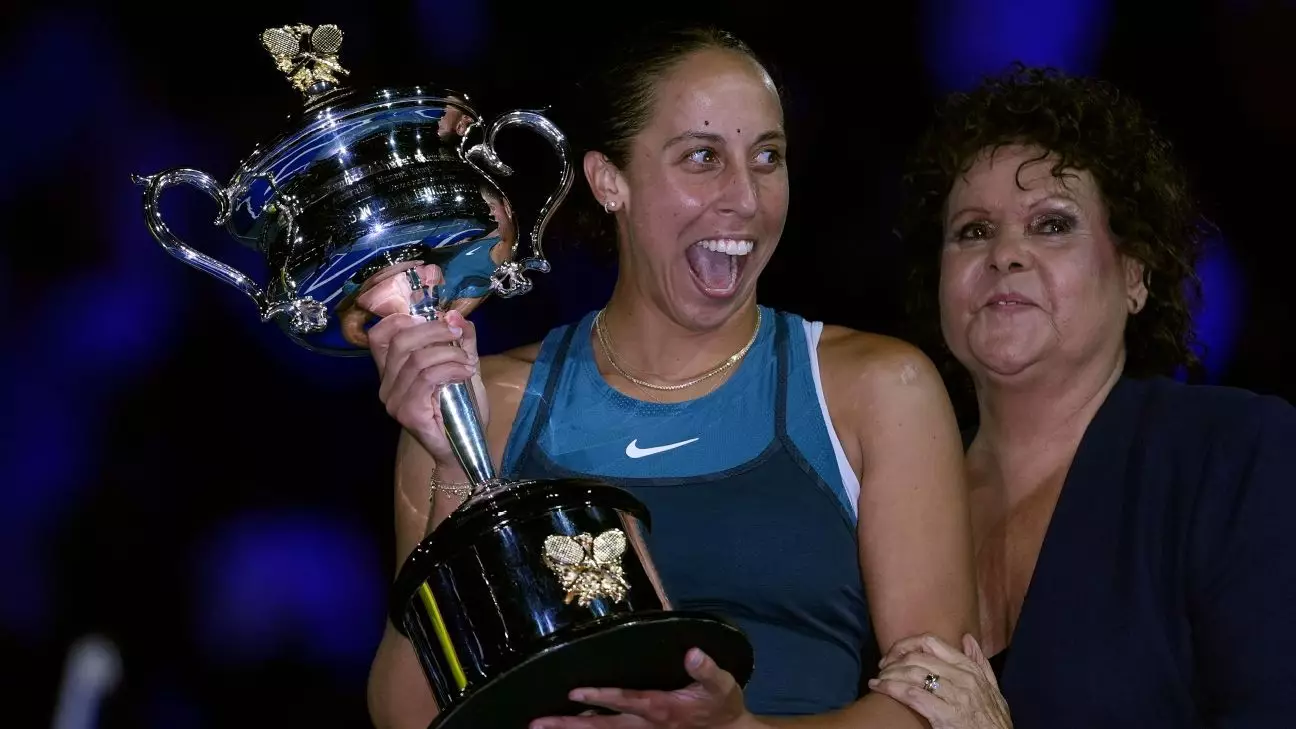Madison Keys recently captured the Australian Open title, a significant milestone in her tennis career that many athletes aspire to achieve. However, this victory has paradoxically led to unexpected consequences for her tournament schedule. Despite her impressive performance, including victories over formidable opponents Iga Swiatek and Aryna Sabalenka, the WTA regulations regarding tournament entries for top-ranked players have rendered her participation in the ATX Open in Austin impossible. Initially, Keys had committed to the event, playing under the impression that her ranking would remain in the low twenties. But after her meteoric rise to World No. 7, tournament limitations forced a reevaluation of her participation.
The rules governing WTA 250 events, including the ATX Open, stipulate that only one player ranked in the top 10 can compete unless the reigning champion also qualifies as a top-10 player. This regulation is primarily designed to promote competitive balance, ensuring that emerging players have opportunities to compete for titles without being overshadowed by the sport’s elite. Unfortunately for Keys, this structure has inadvertently sidelined a champion who was once seen as a guaranteed draw for the event. Jessica Pegula, ranked sixth, has also entered the tournament, further complicating the participation of Keys.
Tournament director Christo van Rensburg expressed a blend of disappointment and understanding regarding the situation. His sentiments reflect a broader conflict within professional sports: the tension between celebrating individual achievements and adhering to structural rules designed for fairness. Van Rensburg’s acknowledgment of the joy surrounding Keys’ victory speaks volumes about the impact of her success, noting the excitement of her anticipated participation in Austin. The inability to host both top-ranked players accentuates the tournament’s dilemma, as organizers keenly feel the loss of a significant draw.
The significance of Keys’ Australian Open triumph cannot be understated. It marks her ascent into the exclusive club of Grand Slam champions after 46 attempts, the third most attempts needed in the Open era to clinch a major title. This context serves as a reminder of the challenges athletes face in their careers, where years of effort can culminate in both fulfilling achievements and puzzling situations. Keys’ victory at 29 years old highlights the resilience needed to succeed at the highest levels of sport.
Despite missing out on the ATX Open, the future remains bright for Madison Keys. Her successes on the court will undoubtedly lead to more invitations and opportunities in upcoming tournaments. While the current regulations have thwarted her immediate plans, the respect and admiration she has garnered will aid her professional journey. Van Rensburg’s anticipation to invite her for subsequent events illustrates how the tennis world continues to embrace champions, offering a silver lining amid the current restrictions. Ultimately, Keys’ recent achievements both amplify her star power and underscore the complex nature of navigating success in the world of professional sports.


Leave a Reply